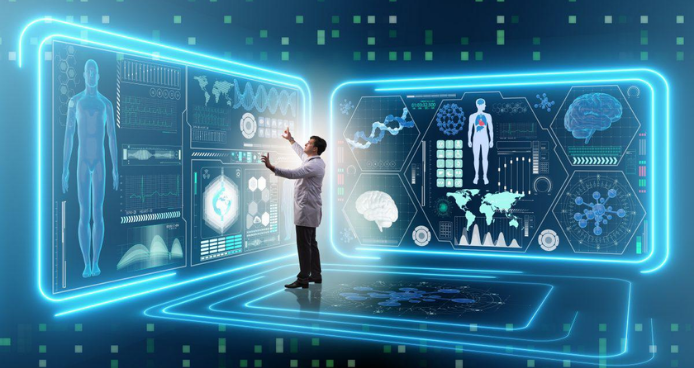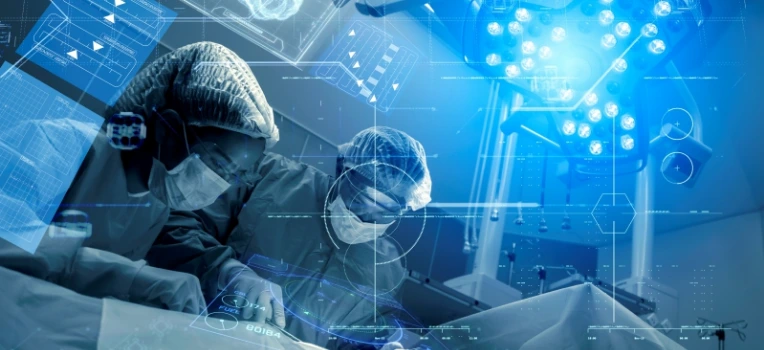Lifestyle
AI In Medicine & Health Care
Published On
3 minutes to read
AI has become an intrinsic part of our lives – the healthcare industry didn’t stay far behind. Like our daily lives, AI is a sophisticated part of our healthcare system. AI is helping us be more efficient at a lower cost. The possibility of what AI and robotics can achieve in healthcare is vast.
One of the most significant advantages of AI benefits is that it helps people stay healthy, so they don’t have as many doctor’s visits. When AI and the Internet of Medical Things (IoMT) are used in consumer health applications, it assists people.
Tech applications and apps motivate people to be healthy and live proactively. They also help people take charge of their health and understand the practical management of healthy living. AI also increases how healthcare professionals understand their patients’ daily patterns and needs. With this understanding, they can provide improved feedback, guidance, and support to lead healthy lives.
How Does AI Help?
Let’s begin with why many healthcare organizations are investing in AI. What benefits do these companies get? How quickly will the technology cause ripples in the medical industry? How can AI help?
Increased Accuracy
According to Johns Hopkins, over 250,000 deaths in the U.S. happen due to medical errors, making it the third prominent cause of death after cardiac disorders and cancer. AI can help prevent these mistakes and save lives.
AI platforms can use machine learning algorithms for drug detection if something is missing in the patient profile. This technology analyses data masses from patients worldwide to determine what’s right. It’s a process that’s similar to fraud detection by financial institutions. It can also enable physicians to see any undetected errors or risks.

Reduced Inefficiency
The Journal of the American Medical Association estimates the healthcare industry spends between $760 billion to $935 billion unnecessarily each year. This amount is approximately 25% of the medical spending in the U.S.
This much money is wasted due to one reason – inefficient processes. It can range from the institutional organizational approaches to the care provision of patients. Deloitte noted that the healthcare industry’s biggest challenge is staff scheduling.
Having AI solutions can improve the management of staff scheduling, saving hospitals 90% of the time it takes if they schedule manually.
Improved Patient Outcome
AI can also help with faster and more accurate diagnoses. One of the latest AI algorithms is trained to detect Covid-19. The University of Central Florida indicated that “the algorithm detected positive cases 84% of the time and negative cases 93% of the time.”
We can also train AI to provide second opinions for physicians of emergency patients. The algorithm can help detect a problem when they need a rapid diagnosis. AI can also assist in analyzing patient data and, in turn, predict how likely a patient is to develop certain illnesses.
The Future Of AI And Health Care
AI affects the health industry in unexpected ways – it provides unlimited opportunities. It can save the healthcare industry time, and money and increase accuracy. We will see the full impact in the coming decades. The essential elements to successfully integrating AI into healthcare are the transparent and ethical use of AI systems. Some risks come along with all the benefits. Those using the technologies need to know the risks.
